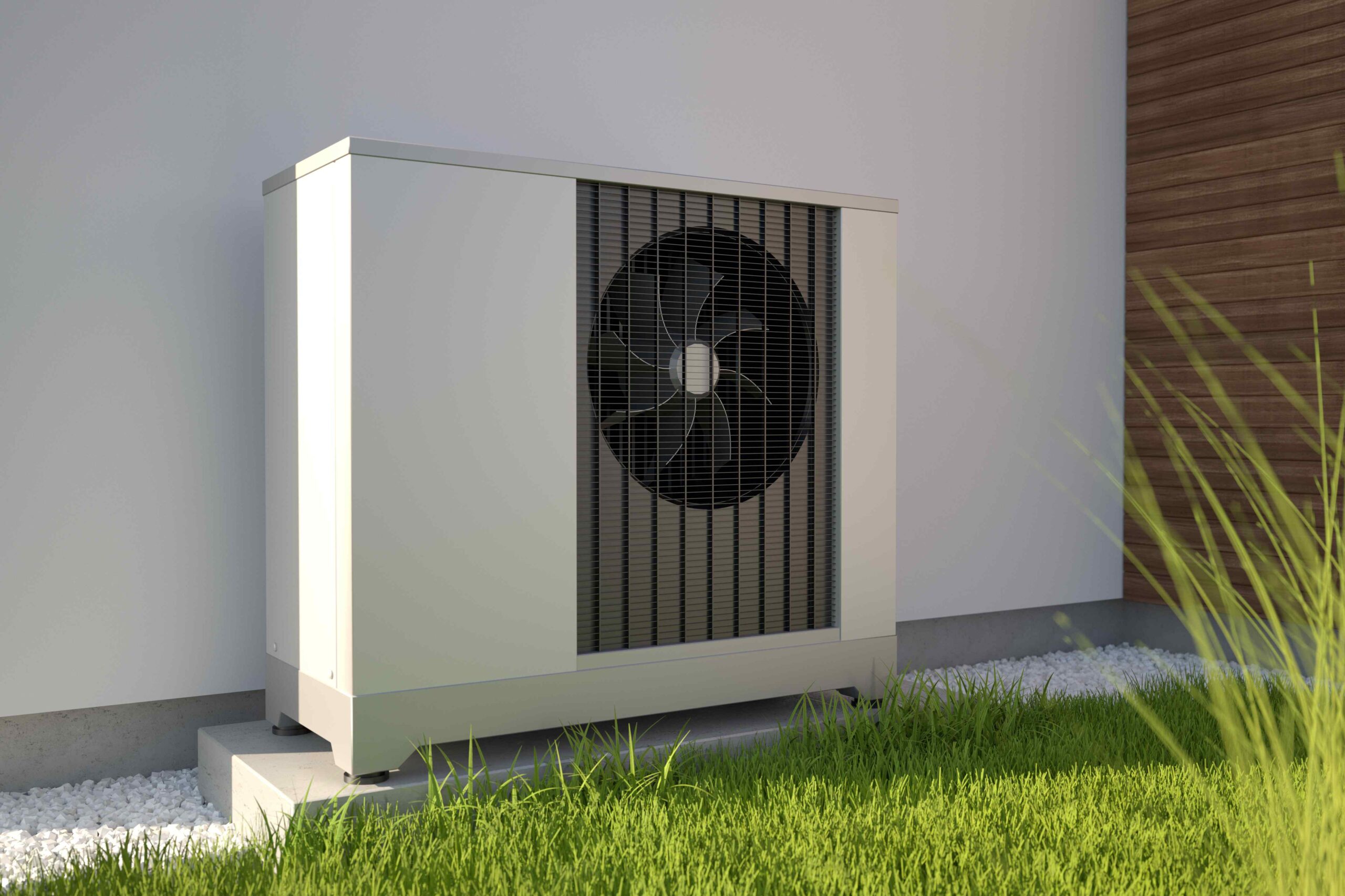Unlike heat pumps with compressor technology, electric heat pumps require no harmful refrigerants and enable increased efficiency. However, this largely depends on the power electronics. Researchers at the Fraunhofer Institute have made a major breakthrough in this regard: For the first time, they have been able to use a calorimetric electric heat pump with an efficiency of more than 99 percent.
In the “ElKaWe” project, several Fraunhofer institutes are jointly researching electric heat pumps that can do without compressors and achieve higher efficiencies.
Photo: © Studio Harmony – stock.adobe.com
Heating in winter and cooling in summer – both possible with a heat pump. In addition, a heat pump is climate friendly because it uses environmental energy from the ground, air, or groundwater. Then it is processed or converted using electrical energy. If the electricity comes from renewable energy sources, the heat pump is particularly environmentally friendly. There is just one problem: mainstream heat pumps are based on compressor technology and the use of refrigerants. This is usually propane, which is composed of carbon and hydrogen and is a by-product of oil production. In addition, current heat pumps achieve only about 50 percent of Carnot’s physical efficiency.
In order to increase efficiency, researchers at the Fraunhofer Beacon “ElKaWe” project are developing electric heat pumps that dissipate heat particularly efficiently while at the same time not requiring compressor technology or refrigerants. Theoretically, electric heat pumps can achieve 85 percent efficiency. However, this largely depends on the integrated power electronics. But now the researchers of the Fraunhofer Beacon Project “ElKaWe” have made a major breakthrough: they have been able to implement an ultra-efficient circuit topology for voltage converters with an electrical efficiency of 99.74 percent. This result sets standards worldwide and is an important step for the success of the energy transition.
Bosch invests more than 1 billion euros in the production of heat pumps
This is how an electric heat pump works
The principle of the electric heat pump is not based on compressor technology, as is the case with conventional heat pumps, but on the so-called electrocaloric effect: some materials change their temperature (heating up, for example) when an electric field is applied to them. If the electric field is removed again, the material cools to a value below the initial temperature. From this point it can absorb heat energy from the heat source. This process enables an efficient heat pump cycle using electrolytes. Since the effect is reversible, the system can be used for both heating and cooling.
Does scarcity of groundwater threaten the efficiency of heat pumps?
New power electronics enable over 99.7 percent efficiency
In the “ElKaWe” project, the Fraunhofer Institute for Applied Solid State Physics IAF is responsible for the development of control electronics for electric heat pumps. In order to increase efficiency and energy density, the team developed power electronics specifically for caloric electricity. In this way, the researchers were able to achieve an efficiency of 99.74% in the path of electrical energy. A result that far exceeds the current state of research as the reload efficiency is less than 90 percent. Components based on the semiconductor gallium nitride (GaN) play a critical role in efficient power electronics. For the researchers, the results achieved mean a breakthrough:
“With ultra-efficient power electronics, it is realistic for the first time to achieve more than 50 percent of the theoretical maximum performance coefficient with electric heat pumps, even at a system level. There is still a lot of research to be done, but in the future this technology could become a more efficient and completely emission-free solution for heating and cooling,” says Stefan Mönch, researcher in the field of power electronics at Fraunhofer IAF.
No Earth, No Water, No Air: An Interface as a Heat Pump Source
Increasing efficiency paves the way for heat pumps
Heat pumps are an important building block of heat transfer. Until now, electric heat pumps have been limited by losses in the electronics. This could change now. Because greater efficiency of control electronics also leads to higher performance of the entire heat pump system.
“Achieving a high coefficient of performance for electric heat pumps is essential to very high efficiencies in materials, electronics and heat transfer. If you can get all this under control, electrocalc technology has huge potential,” says Killian Bartholomew, project manager of “ElKaWe” and researcher at the Fraunhofer Institute for Physical Measurement Technologies IPM.
With the results of the project, the researchers showed that electric heat pumps have the potential to replace compressors in the long term, and thus can still play an important role in the energy transition.
More information about power generation using heat pumps:

“Certified tv guru. Reader. Professional writer. Avid introvert. Extreme pop culture buff.”







More Stories
Samsung Quantum Dot TV: Art meets technology
Pitch: €56m for energy startup Reverion
Plastoplan: Plastics for Energy Transition